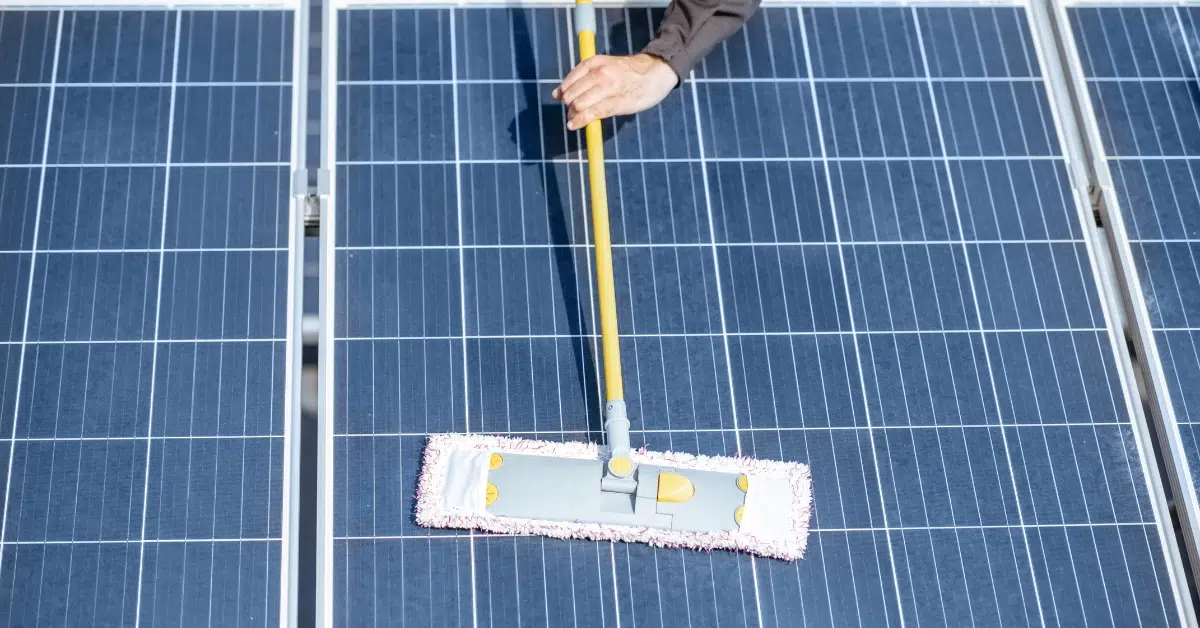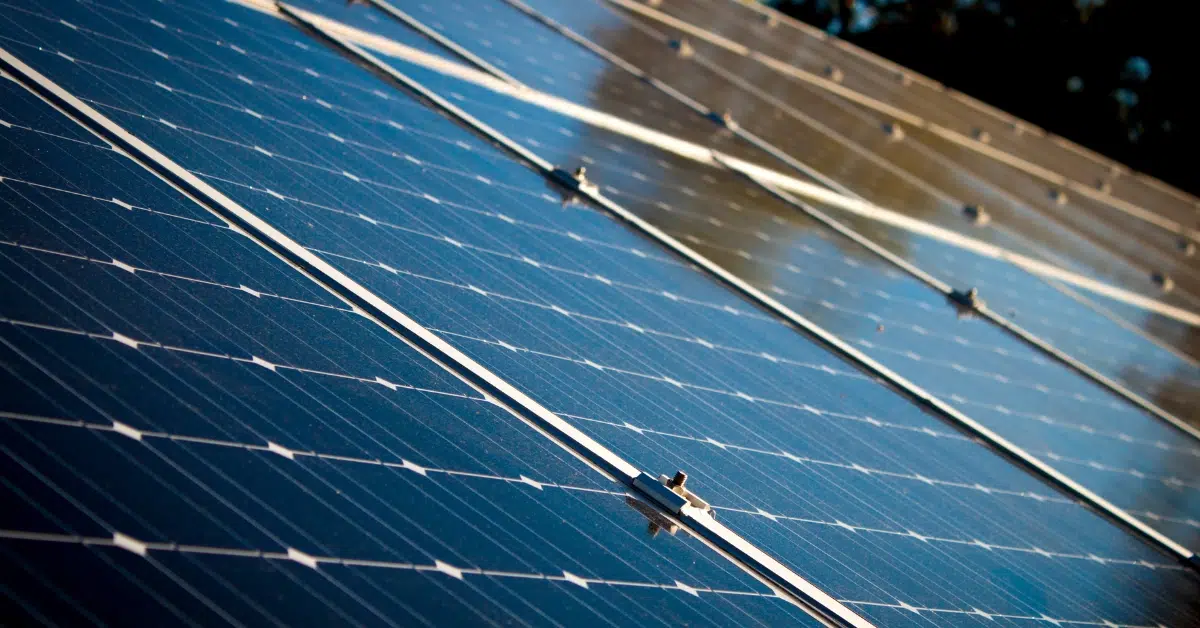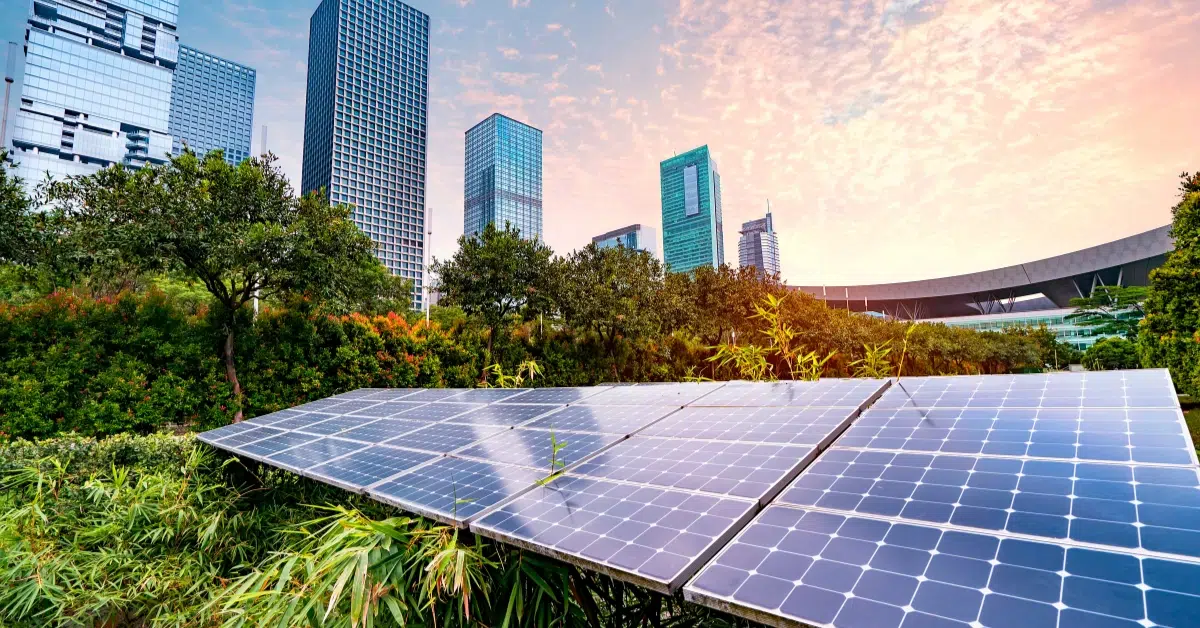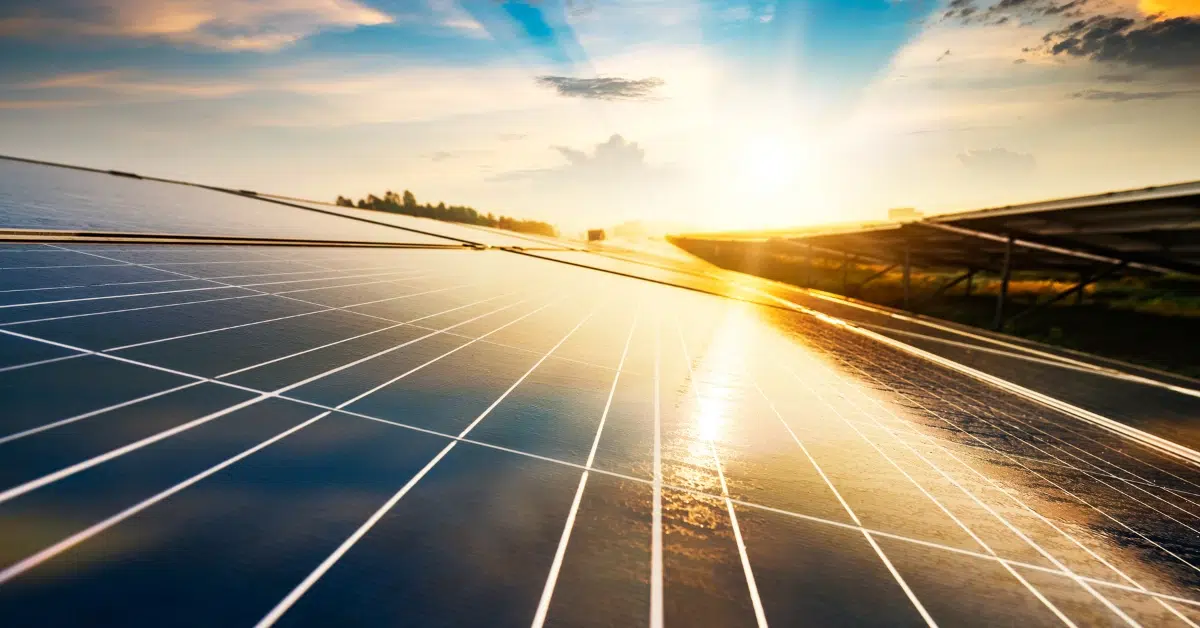Solar panels are a remarkable investment for harnessing renewable energy, but their efficiency relies on proper maintenance. Cleaning solar panels regularly ensures they function efficiently, saving you money and increasing their longevity. This guide explores why regular cleaning is vital, how often to clean solar panels, and the best practices to keep your panels in top shape.
Why Is Cleaning Solar Panels Important?
The Impact of Dirt and Debris on Efficiency
Solar panels work by converting sunlight into electricity, but dirt, dust, bird droppings, and other debris can block sunlight, drastically reducing their efficiency. Dirty solar panels can lose up to 20% of their efficiency in some cases. Over time, this loss can add up, diminishing the energy savings you expect from your investment.
In regions prone to heavy pollution or frequent dust storms, the buildup happens faster, making it even more critical to clean your panels regularly. Without proper maintenance, grime can permanently damage the glass surface, further reducing energy output.
Long-Term Benefits of Regular Cleaning
Keeping your solar panels clean doesn’t just improve performance—it also extends their lifespan. Regular cleaning prevents corrosive substances from settling on the panels, protecting their integrity over the years. Additionally, maintaining efficiency reduces wear on other system components, like inverters, as they don’t need to work harder to compensate for lost energy.
Financially, this translates into maximizing the return on your solar investment. A cleaner panel generates more electricity, which means lower utility bills and faster recouping of installation costs.
Moreover, regular cleaning contributes to sustainability efforts. By ensuring optimal performance, you can maximize the renewable energy output and minimize reliance on non-renewable energy sources, playing your part in a greener future.
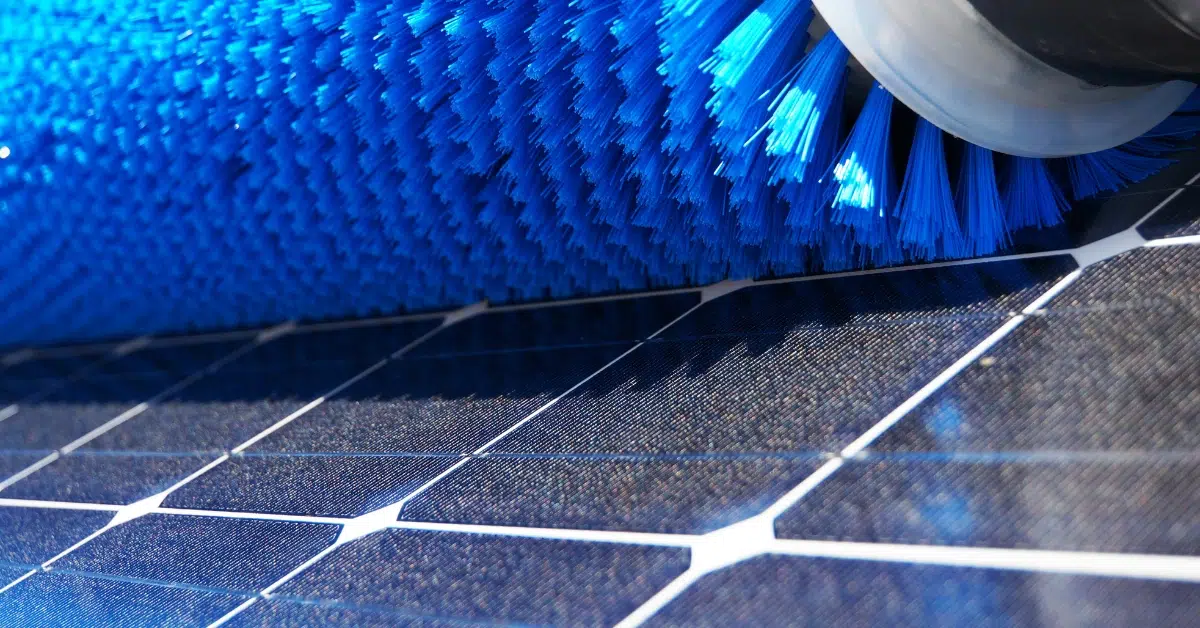
How Often to Clean Solar Panels Based on Conditions
Factors Influencing Cleaning Frequency
The frequency of cleaning depends largely on environmental conditions. For example:
- Urban Areas: Pollution from vehicles and factories can lead to faster grime buildup.
- Rural Areas: Pollen, dust from dirt roads, and agricultural activities can accumulate on the panels.
- Rainy Regions: While rain can help wash off some dirt, it often leaves streaks or fails to remove sticky substances like bird droppings.
- Deserts or Dry Areas: High dust levels mean more frequent cleaning is necessary.
Observing your solar panels regularly will help you determine how quickly dirt accumulates and adjust your cleaning schedule accordingly. Pay close attention to seasonal changes as well. Certain times of the year may bring more pollen, dust, or debris than others.
General Cleaning Guidelines
For most residential solar panels, cleaning every 6-12 months is sufficient to maintain optimal performance. However, if you notice visible dirt or experience a sudden drop in energy production, it’s a good idea to clean them sooner.
Commercial solar panel systems, especially those in industrial zones, may require more frequent cleaning—every 3-6 months—to counteract higher levels of pollutants and debris. Seasonal weather patterns or nearby construction projects can also necessitate more frequent cleanings.
Best Practices for Cleaning Solar Panels
DIY Cleaning Tips
If you decide to clean your panels yourself, it’s important to follow these safe practices:
- Use the Right Tools: A soft brush, sponge, or a microfiber cloth is ideal for removing dirt without scratching the surface.
- Avoid Abrasive Chemicals: Stick to mild, soapy water to avoid damaging the anti-reflective coating.
- Clean on Cool Days: Early mornings or evenings are best, as cleaning under direct sunlight can cause streaking due to rapid evaporation.
- Safety First: Ensure you have proper safety equipment if your panels are on a roof, and consider using a long-handled tool to minimize climbing.
When to Hire Professionals
For large systems, inaccessible panels, or stubborn dirt (like sap or bird droppings), professional cleaning services are often worth the cost. Professionals use specialized equipment and techniques that ensure a thorough clean without risking damage.
Hiring experts is especially crucial after extreme weather events, like storms or wildfires, which can leave behind a heavy residue that’s challenging to remove yourself. Many companies offer affordable maintenance plans to keep your panels clean year-round.
Professional services also bring peace of mind. They ensure that your panels are cleaned in compliance with manufacturer recommendations, preserving warranties and preventing accidental damage.
Conclusion
Knowing how often to clean solar panels is key to maintaining their efficiency and lifespan. By cleaning regularly—either on your own or with professional help—you can ensure your panels generate the maximum energy possible, saving you money in the long run.
Make solar panel cleaning a part of your maintenance routine. Keeping your panels clean not only benefits you financially but also contributes to a more sustainable and energy-efficient world.

